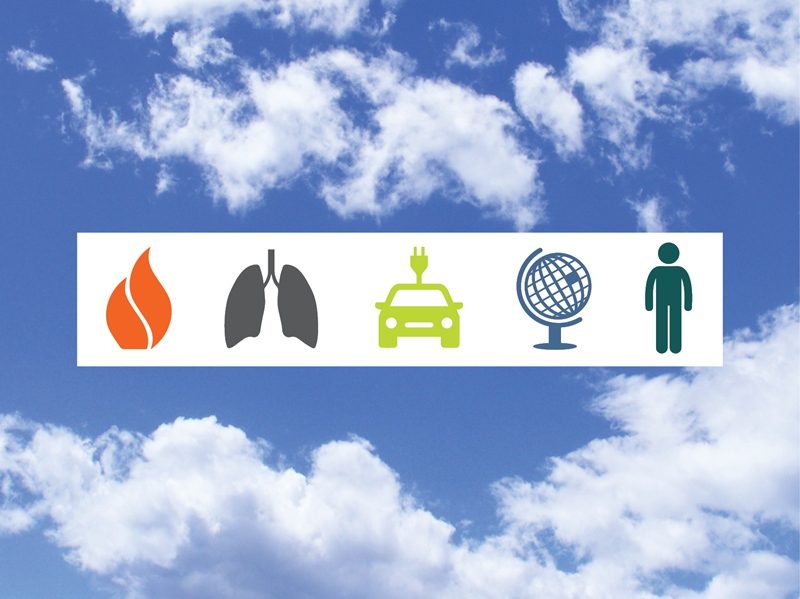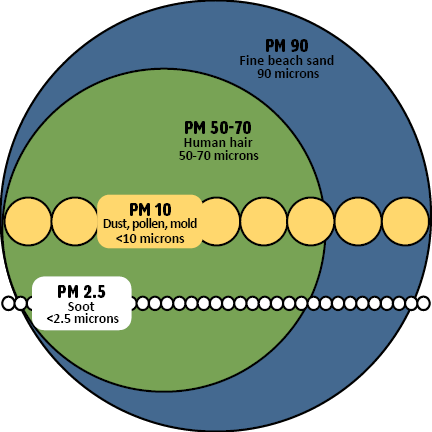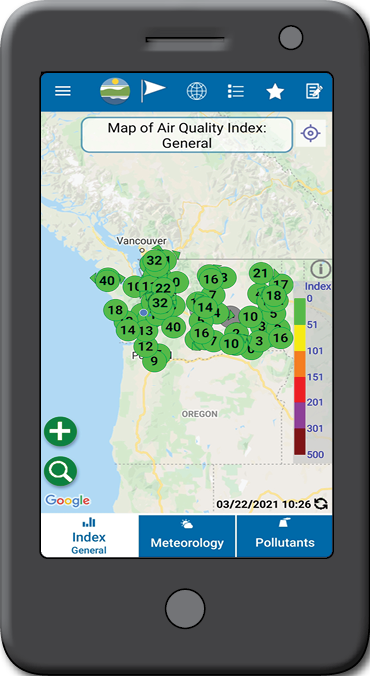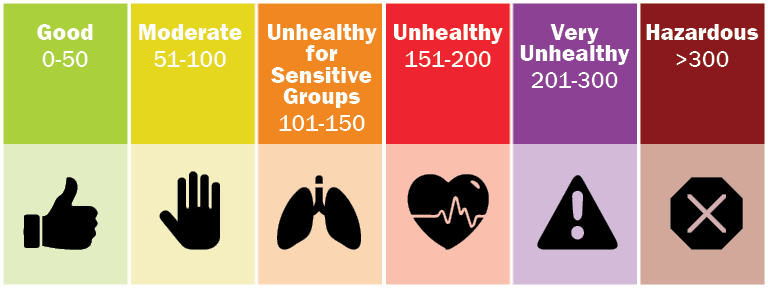
Breathing clean air is important for everyone. Agencies across the country are highlighting “Air Quality Awareness Week” to help people learn about air pollution and how to protect their health.
What is air pollution?
Air pollution is the release of toxic chemicals or compounds in the air that are detrimental to human and environmental health. Most air pollution comes from energy use and production. Burning fossil fuels releases gases and chemicals that contribute to and exacerbate climate change, raising the Earth’s average temperature even more.
In 1970, the federal Clean Air Act authorized the Environmental Protection Agency (EPA) to set National Ambient Air Quality Standards for six common air pollutants:
- Carbon monoxide (CO)
- Lead (Pb)
- Nitrogen dioxide (NO2)
- Ozone (O3)
- Particulate matter (PM)
- Sulfur dioxide (SO2)
The most common pollutant Ecology and local clean air agencies monitor is particulate matter (PM). This is a mixture of tiny solids or liquid droplets made up of smoke, soot, dirt, and dust floating in the air. These tiny particles can harm your health when inhaled. PM mostly comes from wood stoves, outdoor burning, wildfires, blowing dust, and vehicle and industry emissions.
AirQualityWA app.
Where to monitor air quality
AirNow's online map is a partnership with the EPA, National Oceanic and Atmospheric Administration, National Park Service, NASA, Centers for Disease Control, and Tribal, state, and local air quality agencies. It reports air quality using the official U.S. Air Quality Index (AQI) and assigns color-coded categories and a numeric value to show when air quality ranges from good to hazardous.
The “AirQualityWA” app also uses the AQI. You can download the app from the Google Play Store or Apple App store to monitor air quality in your area when you're on the go.
When you know the AQI in your area, you can take steps to protect your health.
Protecting your health
There is a significant connection between air pollution, respiratory illness, and premature death. Everyone can be affected by air pollution, but people in sensitive groups are particularly vulnerable to poor air quality conditions.
Sensitive groups include:
- The elderly
- Children
- Pregnant people
- Those with cardiovascular diseases
- People with respiratory illnesses
- People with other underlying health conditions
Symptoms of exposure to smoke or unhealthy levels of air pollution include:
- Eye, nose, and throat irritation
- Shortness of breath, asthma attack, or lung irritation
- Nausea
- Headaches
- Watery or dry eyes
- Persistent cough, phlegm, wheezing, scratchy throat, or irritated sinuses
- Irregular heartbeat, chest pain, or fatigue
- Non-fatal and fatal heart attacks.
For relief from your symptoms:
- For itchy eyes, you can use over-the-counter artificial tear drops
- For a scratchy throat, drink plenty of water and run a humidifier
- For a headache, take an over-the-counter pain reliever
- Wear an N95 mask if you are outdoors
- Drink plenty of water
- Replace your vehicle's cabin air filter
- Replace the HEPA filter in your home ventilation system
- Limit time spent outdoors and keep your windows closed
- If you’re in a sensitive group and your symptoms are severe, consider leaving the area and contacting your doctor
- Make your own clean air fan
Español https://youtu.be/paDqiIZUECw
한국어 https://youtu.be/zqlWd8-74CU
Tiếng Việt https://youtu.be/8HXcbVfTdwQ
What we're doing to protect the air
Everyone deserves to breathe clean air and look forward to a sustainable future that responds to the challenges presented by climate change.
We are tracking greenhouse gases, investing in cleaner transportation by steadily transitioning to cleaner vehicles, and implementing the Climate Commitment Act and other new climate policies to reduce carbon pollution and achieve the greenhouse gas emission limits set in state law. Environmental justice is at the center of all our work to ensure cleaner, healthier air for disproportionately impacted communities.
Learn how you can help reduce the effects of climate change by reducing your greenhouse gases.





